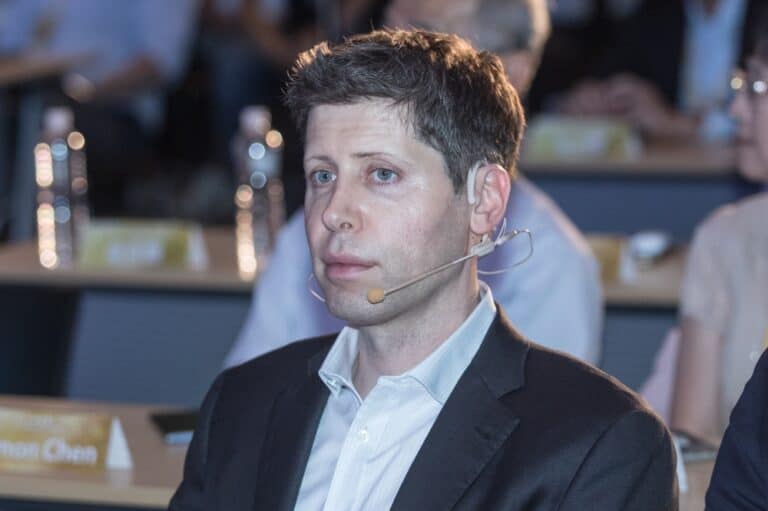To drive their AI innovation, all major tech companies rely heavily on Nvidia’s hardware. OpenAI CEO Sam Altman plans to secure billions from Middle Eastern partners to reduce this dependence.
Altman’s chip plans are not new. In November, their coverage from Bloomberg was overshadowed by the turmoil within OpenAI. At the time, Altman was fired and rehired within a short timeframe.
Along with former Apple designer Jony Ive, Altman is said to have been in talks with several parties. The project is called “Tigris” and is still in its early stages. The chip plans have been discussed with SoftBank, the Saudi Arabian Public Investment Fund (PFI) and Mubadala, among others. Altman and Ive are seeking tens of billions of dollars to fund the project. TSMC is the desired production partner.
Middle East as mainstay offers hope for Altman
Financial Times reports that Altman is in talks with some of the richest and most influential investors in the Middle East. Sheikh Tahnoon, brother of the president of the United Arab Emirates (UAE), is said to be a possible partner. Among other things, he is chairman of the Abu Dhabi Investment Authority, which has over 700 billion euros at its disposal.
For the Middle East, the region occupies a unique position within the global chip industry. Export restrictions between China on the one hand and the U.S./EU on the other place the region in a curious dilemma. Its loyalties are divided between the two blocs, whereas it harbours ambitions of its own, too. Saudi Arabian policymakers have big ambitions to make the country an “AI hub,” while the UAE has also made significant investments in Nvidia chips, among other things. As of yet, there’s no clear leader in this part of the world.
Middle Eastern countries hope to develop themselves more broadly in the global tech industry, with a leading role in AI as a specific goal. Altman’s initiative could therefore find a suitable partner. One thing is certain: the Middle East at least has the financial clout to make a meaningful impact on the AI hardware space.
Nvidia rival
Tigris will not have an impact on the AI world anytime soon, however. Developing a single advanced chip design into a viable product takes established names about three years, with even companies like Intel, AMD and Qualcomm being nowhere near Nvidia’s level of pure AI performance. The H100 GPU is gripping the entire tech industry, with this AI hardware setting the standard for both developing and running the technology.
For that reason, Meta, Microsoft, Google and other major tech players are fighting for a limited supply of chips, with the price per H100 running between 25,000 and 30,000 euros.
Although these companies often also build their own AI accelerators, the highest performance and fastest innovations require Nvidia chips. In addition, that company has built a considerable software ecosystem with which developers are intimately familiar.
There is a big challenge ahead for any AI chip project. For Sam Altman, providing OpenAI will be the primary concern. If it can receive its own chips from TSMC, it may have a way to circumvent the Nvidia shortages partially. Still, it is highly unlikely that an actual Nvidia rival will emerge within a few years. That company’s technological advantage is far too great for that.
Also read: No, nobody’s going to be an ‘Nvidia rival’ anytime soon
